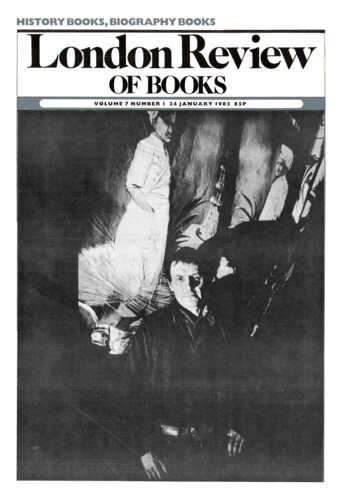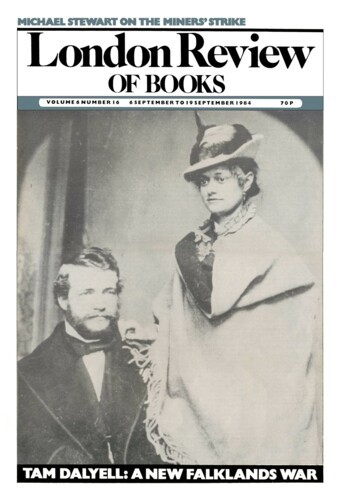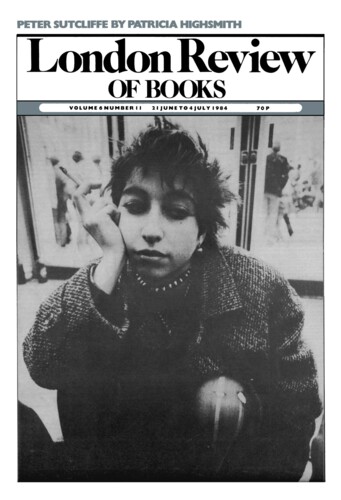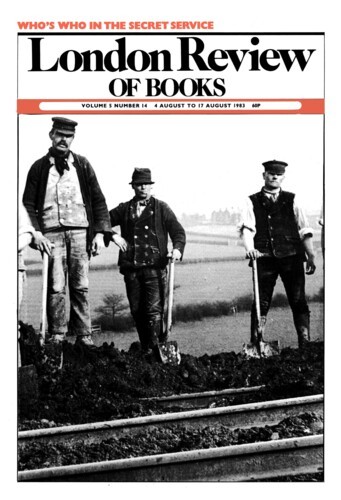Eliot at smokefall
Barbara Everett, 24 January 1985
Two events of the last year have attracted a lot of notice. One is the production of Michael Hastings’s play, Tom and Viv, and the other the publication of Peter Ackroyd’s biography, T.S. Eliot. They of course share a subject, the poet himself. But this choice of subject, the life of the writer with perhaps the biggest public image of any in our time, suggests something else they have in common. These two works are in one way more alike than might be expected from the ‘creative’ or ‘fictional’ mode of the one, and the ‘critical’ or ‘factual’ mode of the other; and what brings them together, apart from some confusion of these categories, is their similar capacity to throw light on what is wrong with the present public image of the literary.




